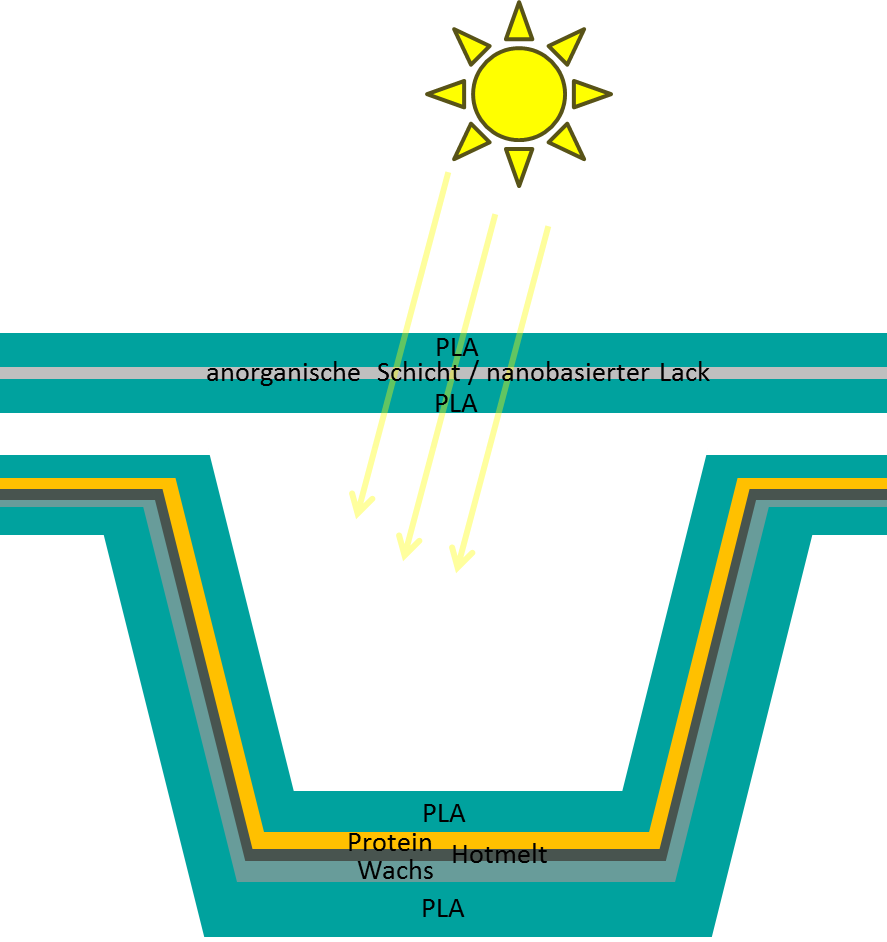PLA as the basis for an innovative packaging concept

Sensitive foods, including meat products, dairy produce, and baked goods, require special packaging to keep the products fresh for as long as possible. The PLA4MAP project is developing a bio-based, recyclable packaging system that comprises a deep-drawn PLA (polylactic acid) container and a PLA sealing film. For innovative modified atmosphere packaging (MAP), specific oxygen and water vapor permeabilities must not be exceeded.
Manufacture of PLA containers
The ready availability of the biopolymer PLA facilitates the establishment of a circular economy for PLA. Any shortcoming regarding the water vapor permeability of the PLA containers can be remedied by applying an additional coating of non-polar materials, such as plant oils and waxes, and by crosslinking the PLA via electron beam (e-beam) treatment. Both processes are being designed so that they can be implemented into existing commercial plants and so that the layers have adequate mechanical stability. In order to protect oxygen-sensitive foods, there is an integrated oxygen barrier consisting of a bio-based protein layer which is in principle recyclable.
The lid consists of PLA with a transparent inorganic barrier layer which does not hinder recycling of the material. On top of that there is a second laminated PLA film. Packaging trials will be conducted with selected products to enable the parameters of the direct contact heat sealing process to be optimized, so facilitating industrial implementation.
Recyclability of PLA containers
To guarantee recyclability, the new packaging will be evaluated for its ability to be mechanically recycled and also recycled using solvents. In addition, the recyclates will be evaluated for compliance with food legislation and for their use for a variety of applications.
The project results will be published in a user handbook accessible to the public in order to promote establishment of the materials in the marketplace.
Project term: |
2020 to 2023 |
Project management |
Federal Ministry of Food and Agriculture BMEL |
Funding code: |
2219NR148 |
Project partners: |
|
 Fraunhofer Institute for Process Engineering and Packaging IVV
Fraunhofer Institute for Process Engineering and Packaging IVV